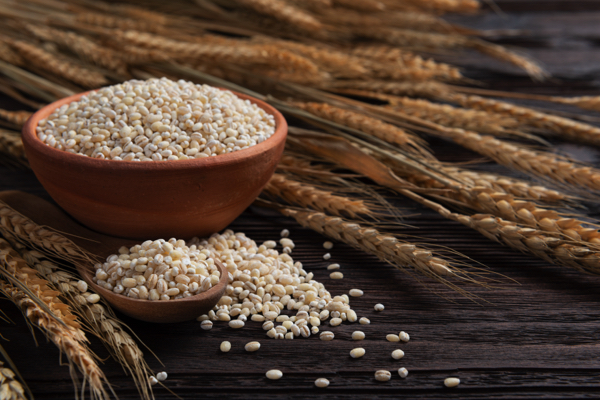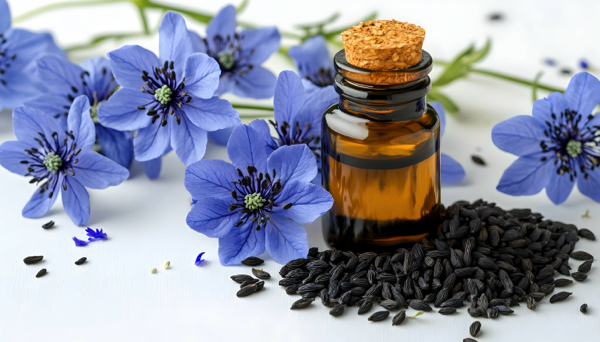A toast to heart health: How moderate wine consumption could support a healthy heart
01/12/2025 / By Zoey Sky

- A study published in the European Heart Journal found that moderate wine consumption (12–35 glasses per month, or about one glass per day) can reduce the risk of heart disease by up to 50 percent.
- Researchers used tartaric acid in urine samples as a biomarker to accurately measure wine intake. The study tracked 1,232 older adults at high risk of cardiovascular disease over four to five years, focusing on Mediterranean populations.
- Red wine, in particular, contains polyphenols like resveratrol, which reduce inflammation, improve blood vessel function and lower LDL (“bad”) cholesterol. These antioxidants help neutralize free radicals, which contribute to chronic diseases.
- The heart-protective effects of wine are most significant when consumed as part of a Mediterranean diet, which includes fruits, vegetables, whole grains, nuts, seeds and healthy fats.
- Moderate wine consumption, particularly within a Mediterranean diet, may support heart health, but it should be part of a broader lifestyle that includes a balanced diet, exercise and other healthy habits.
For centuries, wine has been celebrated not just for its rich flavors and cultural significance, but also for its potential health benefits. Now, emerging research suggests that enjoying a glass of wine in moderation – particularly as part of a balanced diet – could play a meaningful role in supporting heart health.
A groundbreaking study published in the European Heart Journal has shed new light on the protective effects of wine, revealing that moderate consumption could reduce the risk of heart disease by up to 50 percent.
But before you uncork that bottle, it’s important to understand the nuances of these findings and how they fit into a broader picture of heart-healthy living.
Science behind wine and heart health
The study, led by Professor Ramon Estruch from the University of Barcelona, took a unique approach to measuring wine consumption. Instead of relying solely on self-reported data, researchers analyzed urine samples for tartaric acid, a biomarker that provides a more accurate measure of wine intake.
Over four to five years, they tracked 1,232 older adults at high risk of cardiovascular disease, all of whom lived in a Mediterranean country.
The results were striking: Participants who drank between 12 and 35 glasses of wine per month – roughly one glass per day – had a 50 percent lower risk of heart disease compared to those who drank one glass or less. Even those who consumed between three and 12 glasses per month saw a 38 percent reduction in risk.
These benefits were comparable to or even exceeded, the effects of statins, a commonly prescribed medication for lowering cholesterol.
However, the study also highlighted a crucial caveat – moderation is key. Drinking more than 35 glasses per month diminished the heart-protective effects. This underscores the importance of balance when it comes to alcohol consumption.
Role of antioxidants
So, what makes wine, particularly red wine, so beneficial for the heart? The answer lies in its rich concentration of antioxidants, particularly polyphenols like resveratrol.
These compounds help neutralize free radicals – unstable molecules that can damage cells and contribute to chronic diseases, including heart disease. Resveratrol, in particular, has been shown to reduce inflammation, improve blood vessel function, and lower levels of LDL (low-density lipoprotein) cholesterol or “bad” cholesterol.
But wine isn’t the only source of these powerful antioxidants. Foods like peaches, sweet potatoes, tangerines and walnuts also contain polyphenols, making them excellent additions to a heart-healthy diet.
For those who don’t drink alcohol, there’s no need to start solely for the sake of resveratrol.
Wine and the Mediterranean diet
One of the most intriguing aspects of the study is its focus on the Mediterranean diet, a dietary pattern rich in fruits, vegetables, whole grains, nuts, seeds and olive oil, with moderate amounts of fish, poultry and dairy.
This diet has long been associated with reduced risks of heart disease, and the study suggests that wine may amplify its benefits.
Professor Paul Leeson, a cardiologist and professor of cardiovascular medicine at the University of Oxford, noted that the heart-protective effects of wine may only be significant when consumed as part of this dietary pattern. Leeson suggested that the health advantages of a glass of wine could only be seen “when being drunk alongside a plate of Mediterranean food.”
This also highlights an important point: Like other superfoods, wine isn’t a magic elixir. Its benefits are most likely to be realized when enjoyed as part of a broader lifestyle that prioritizes nutrient-rich foods, regular physical activity and other heart-healthy habits. (Related: Blueberries: Nature’s MIRACLE MEDICINE for optimal heart health and brain function.)
Practical tips for enjoying wine responsibly
If you’re considering incorporating wine into your routine for its potential heart benefits, here are a few key guidelines to keep in mind:
Moderation is essential
The study defined moderate consumption as 12 to 35 glasses per month or roughly one glass of wine per day. For women, experts recommend limiting intake to half that of men due to differences in metabolism.
Pair it with meals
Drinking wine with food, particularly meals rich in fruits, vegetables and healthy fats, may enhance its benefits.
Know your limits
If you don’t currently drink alcohol, there’s no need to start. The potential benefits of wine can be achieved through other dietary and lifestyle choices.
Choose quality over quantity
Opt for high-quality wines, particularly red varieties, which tend to have higher concentrations of polyphenols.
Consult your doctor
If you have a history of heart disease, high blood pressure, or other health conditions, it’s important to discuss alcohol consumption with your healthcare provider.
The latest research adds to a growing body of evidence that moderate wine consumption, particularly as part of a Mediterranean diet, could be a valuable tool in supporting heart health.
However, it’s important to remember that wine is just one piece of the puzzle. A balanced diet, regular exercise, stress management and avoiding smoking are all critical components of a heart-healthy lifestyle.
The next time you drink a glass of wine, you can do so with the knowledge that, when enjoyed responsibly, it might just be doing your heart a favor.
Visit Superfoods.news for more stories on other foods that can help support your overall well-being.
Watch the video below to learn more about beets, another superfood that can help support optimal heart health.
This video is from the All About Herbs channel on Brighteon.com.
More related stories:
5 Remarkable ways GARLIC can support your health, according to science.
A closer look at the health benefits of capers.
Aloe vera: Nature’s green elixir with science-backed health benefits.
Sugarcane extract superior to cholesterol-lowering drugs?
Sources include:
Submit a correction >>
Tagged Under:
cardiovascular health, food is medicine, heart attack risk, heart attacks, heart health, Mediterranean diet, nutrition, prevention, red wine, research
This article may contain statements that reflect the opinion of the author
RECENT NEWS & ARTICLES
COPYRIGHT © 2017 HEART NEWS


















